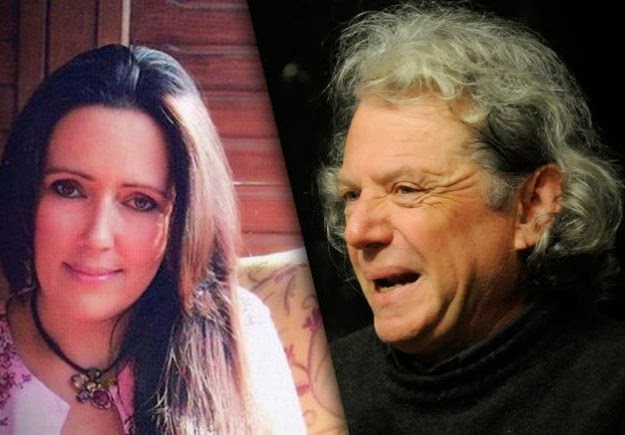Θα ήθελα να μοιραζόμουν μια ιστορία μαζί σας, αφού έχω αρκετές κρυμμένες στους φακέλους μου που περιμένουν τη στιγμή για να σας πουν κάτι. Όμως τα πρόσφατα γεγονότα με αναγκάζουν να συμμετάσχω στο διάλογο της επικαιρότητας. Το 2014 ήταν μια αρκετά θλιβερή χρονιά, με πολέμους, θανάτους. Βλέποντας τον απολογισμό του πρακτορείου Reuters αναρωτιέσαι σε τι κόσμο βρισκόμαστε. Το 2015 ήρθε φορτωμένο με ελπίδες. Θα ανακάμψει η οικονομία, θα αλλάξει η κυβέρνηση στην Ελλάδα και ίσως το μνημόνιο να μην πέφτει πια τόσο βαρύ στους ώμους των Ελλήνων, θα σεβαστούν την ανακωχή στην Ουκρανία, θα αποδυναμωθεί το Ισλαμικό Κράτος, θα «επανεκκινήσουμε» την οικονομία μας, όπως αρέσκονται να δηλώνουν ξανά και ξανά οι κρατούντες.
Τίποτα από αυτά δεν είδαμε ακόμα. Και φοβάμαι πως δεν θα τα δούμε. Η βία κέρδισε ξανά έδαφος και το 2015 μπήκε άσχημα. Η τρομοκρατική επίθεση στο Παρίσι εναντίον της σατιρικής εφημερίδας Charlie Hebdo πήρε αηδιαστική τροπή.
Αρχίζω λέγοντας ότι πρέπει να καταδικάζεται η κάθε μορφή βίας. Από όπου και αν προέρχεται. Ωστόσο, τόσο οι ακροδεξιοί, δεξιοί κτλ. όσο και οι απλοί πολίτες αποφάσισαν να ερμηνεύσουν το γεγονός όπως τους βολεύει, απλώς και μόνον για να εξυπηρετήσουν δικές τους σκοπιμότητες.
Η μία πλευρά βλέπει πόσο επικίνδυνοι είναι οι μουσουλμάνοι. Απροσδόκητο συμπέρασμα, εφόσον η μουσουλμανική κοινότητα στο Παρίσι καταδικάζει την επίθεση και τον θρησκευτικό εξτρεμισμό.
Ακόμα, καλό είναι να λεχθεί, ότι το Ισλαμικό Κράτος και οποιαδήποτε άλλη εξτρεμιστική οργάνωση δεν καταφεύγει στη βία για σκοπούς ιδεολογίας ή θρησκείας. Αντιθέτως, εκμεταλλεύονται την θρησκεία για να φανατίζουν και ό, τι κάνουν το κάνουν στο όνομα της βίας και της εξουσίας. Άρα το πρόβλημα έγκειται στην ανάγκη επιβολής που έχουν αυτοί οι άνθρωποι και όχι στη θρησκεία τους.

Έπειτα, η κοινή γνώμη έχει υιοθετήσει το σύνθημα αλληλεγγύης #JeSuisCharlie. Αφ’ ενός είναι συγκινητικό το πόσο ενδιαφέρονται οι άνθρωποι για την ελευθερία του Τύπου και πόσο επηρέασε αυτή η απροκάλυπτη επίθεση στην εφημερίδα το κοινό. Αφ’ ετέρου όμως, το σύνθημα φαντάζει άκριτο. Η εφημερίδα ήταν ιδιαιτέρως ακραία στον τρόπο έκφρασής της, τολμώ να πω ότι ενίοτε ήταν και υβριστική απέναντι σε ευάλωτες ομάδες του πληθυσμού. Χωρίς καμία διάθεση λογοκρισίας δηλώνω ότι το έργο της Charlie Hebdo δεν μου αρέσει. Και υποψιάζομαι ότι σε πολλούς δεν αρέσει, όπως για παράδειγμα στη Marine Le Pen, την ηγέτη της γαλλικής άκρας δεξιάς, η οποία έσπευσε να καταδικάσει τους τζιχαντιστές και να καλέσει το λαό να προστατεύσει την ελευθερία του Τύπου.
Αυτό που θέλω να πω είναι ότι παρόλο που οι περισσότεροι μάλλον βρίσκουν την νοοτροπία της εφημερίδας σκανδαλώδη, αν όχι κακόγουστη, δεν παύουν να «καταργούν» στιγμιαία την ταυτότητά τους και τις προτιμήσεις τους για να υπερασπιστούν χάριν της ελευθερίας του Τύπου το συγκεκριμένο έντυπο.
 |
| Πρωτοσέλιδο της Charlie Hebdo, όπου απεικονίζονται Πατήρ, Υιός και Άγιον Πνεύμα. |
Η υιοθέτηση αυτής της ταυτότητας τους προσδίδει μάλλον έναν αέρα επανάστασης, του πληκτρολογίου, όπως συνήθως επαναστατούμε στις μέρες μας. Ακόμα, νοιώθουν ότι ανήκουν κάπου. Βλέποντας τη διεθνή κατακραυγή έναντι στην επίθεση, οι άνθρωποι που υιοθετούν το σύνθημα έρχονται πιο κοντά. Δεν είδα όμως κάποιον να δηλώνει ότι είναι ένα από τα κορίτσια που δολοφονήθηκαν στη Νιγηρία από την Μπόκο Χαράμ, ή κάποιος από τους μαθητές που σκοτώθηκαν στο Πακιστάν από τους Ταλιμπάν. Ίσως, μόνο οι Γάλλοι καρτουνίστες μας νοιάζουν...
Όπως και να' χει το πράγμα, δεν είμαστε ο Charlie. Αυτό βέβαια δεν μας καθιστά και υποστηρικτές του αντίπαλου στρατοπέδου, όπως πολλοί έσπευσαν να γράψουν στα μέσα κοινωνικής δικτύωσης. Είμαστε απλοί άνθρωποι που δεν θέλουν να ζουν μέσα στο φόβο. Είμαστε απλοί άνθρωποι που υποστηρίζουν το δικαίωμα του οποιουδήποτε να ζει και να εργάζεται χωρίς να υπόκειται σε απειλές κατά της ζωής και της ασφάλειάς του.
Οι σκέψεις μας τώρα πρέπει να στραφούν προς τους ανθρώπους: τους συγγενείς των σκιτσογράφων και των αστυνομικών, των ομήρων και άλλων απλών ανθρώπων που ένιωσαν τι σημαίνει εξτρεμισμός από πρώτο χέρι. Επιπρόσθετα, οι σκέψεις μας πρέπει να βρίσκονται μαζί με τη μουσουλμανική μειονότητα της Ευρώπης, που τώρα όσο ποτέ άλλοτε βρίσκεται στην μπούκα, τόσο των ακροδεξιών και δεξιών στοιχείων— ως συνήθως— αλλά και των απλών πολιτών. Ας μην επιτρέψουμε στο μίσος και τη μισαλλοδοξία να μας πουν τι να πιστεύουμε και ποιον να εμπιστευόμαστε. Ας μην φοβηθούμε. Ας μην δώσουμε βήμα σε αυτούς που σπέρνουν το μίσος. Ας μην ακυρώσουμε όλες μας τις ελπίδες για το 2015…













